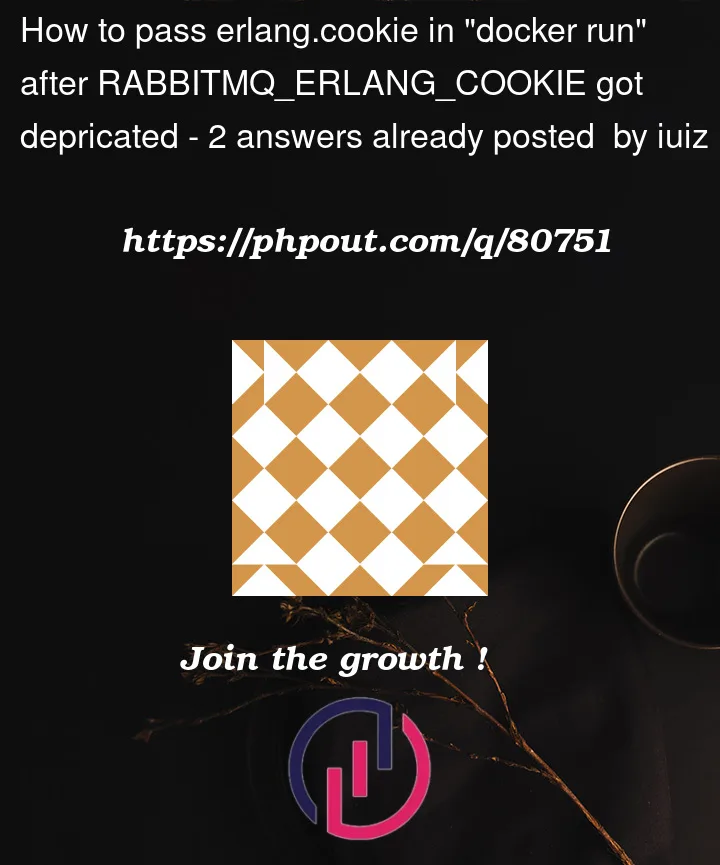I want to start three RabbitMQ containers that will be joined together in a cluster. I want to keep it simple and not define complex Dockerfiles with specific volumes.
This is what I am doing right now:
docker network create rabbits
docker run -d --rm --net rabbits --hostname rabbit-1 --name rabbit-1 -p 8081:15672 -e RABBITMQ_ERLANG_COOKIE=ASDF rabbitmq:3.8-management
docker run -d --rm --net rabbits --hostname rabbit-2 --name rabbit-2 -p 8082:15672 -e RABBITMQ_ERLANG_COOKIE=ASDF rabbitmq:3.8-management
docker run -d --rm --net rabbits --hostname rabbit-3 --name rabbit-3 -p 8083:15672 -e RABBITMQ_ERLANG_COOKIE=ASDF rabbitmq:3.8-management
When I then try to tell the nodes to join each other with the following commands, I get an error message:
docker exec -it rabbit-2 rabbitmqctl stop_app
docker exec -it rabbit-2 rabbitmqctl reset
docker exec -it rabbit-2 rabbitmqctl join_cluster rabbit@rabbit-1
docker exec -it rabbit-2 rabbitmqctl start_app
docker exec -it rabbit-2 rabbitmqctl cluster_status
This results in:
RABBITMQ_ERLANG_COOKIE env variable support is deprecated and will be REMOVED in a future version. Use the $HOME/.erlang.cookie file or the --erlang-cookie switch instead.
However I do not know how to pass this switch. When I add this to the docker run command it does not work. So i thought maybe add this after the join_cluster command, but then the cookie is already set.
How do I need to change the docker run command?




2
Answers
In response to your and other questions about
RABBITMQ_ERLANG_COOKIE, I opened this issue:https://github.com/rabbitmq/rabbitmq-server/issues/7262
Currently you should use the environment variable and disregard the warning.
The best practice is to use docker compose and your own image based off of the official RabbitMQ images:
https://github.com/lukebakken/docker-rabbitmq-cluster/blob/main/docker-compose.yml
https://github.com/lukebakken/docker-rabbitmq-cluster/blob/main/rmq/Dockerfile
NOTE: the RabbitMQ team monitors the
rabbitmq-usersmailing list and only sometimes answers questions on StackOverflow.The RABBITMQ_ERLANG_COOKIE environment variable is no longer used in RabbitMQ starting from version 3.7.0. Instead, you can set the Erlang cookie value by using the -e option in the docker run command and setting the RABBITMQ_ERLANG_COOKIE environment variable to your desired value. Here’s an example:
docker run -d –name rabbitmq -e RABBITMQ_ERLANG_COOKIE=’your_cookie_value’ rabbitmq:3
Alternatively, you can store the Erlang cookie in a file and mount it as a volume in your container. For example:
Create a file named erlang.cookie with your desired cookie value
echo ‘your_cookie_value’ > erlang.cookie
Start the RabbitMQ container, mounting the erlang.cookie file
docker run -d –name rabbitmq -v $(pwd)/erlang.cookie:/var/lib/rabbitmq/.erlang.cookie rabbitmq:3